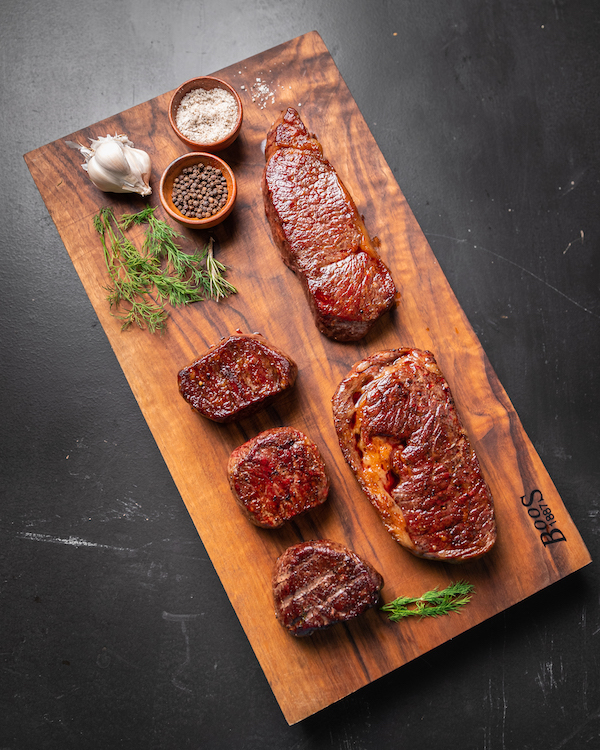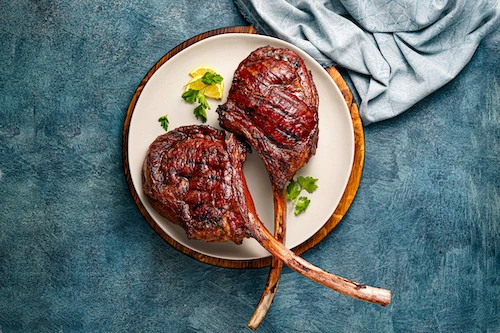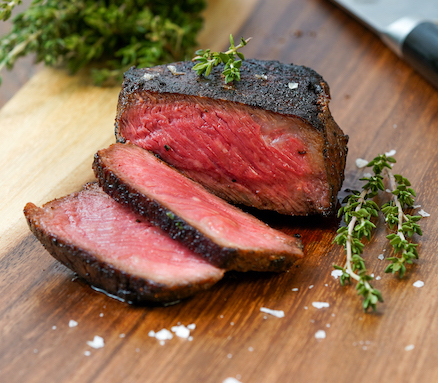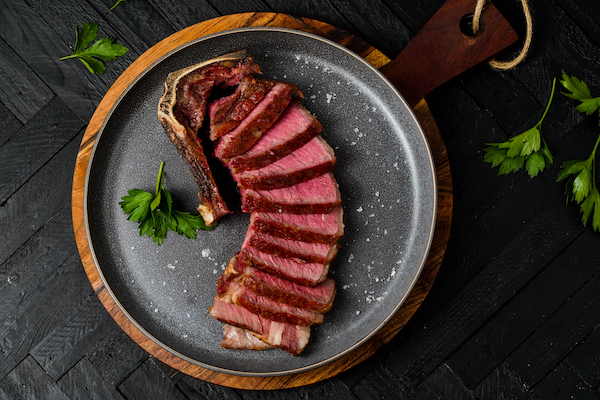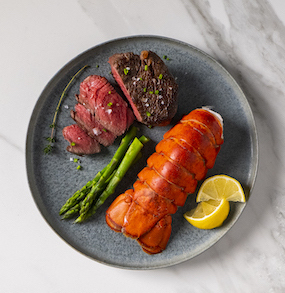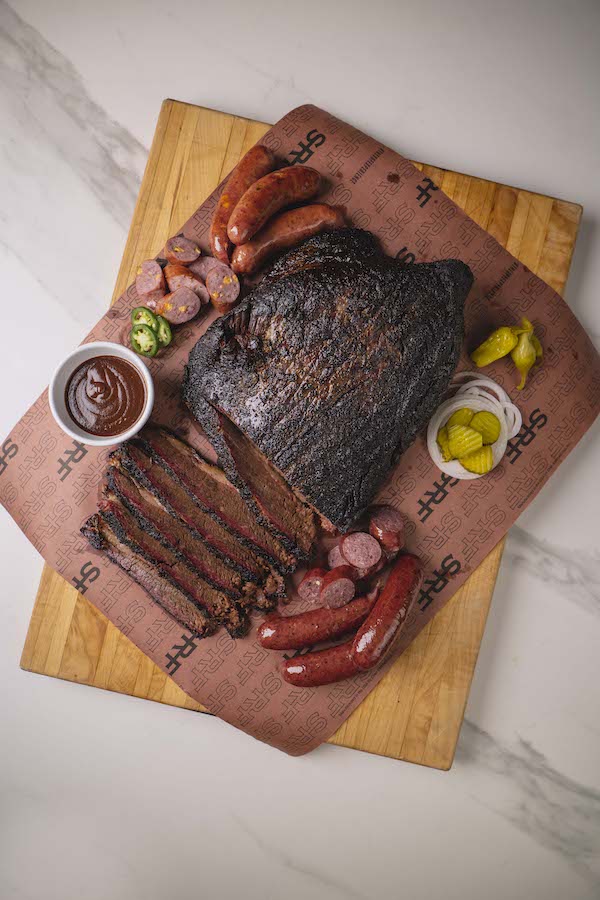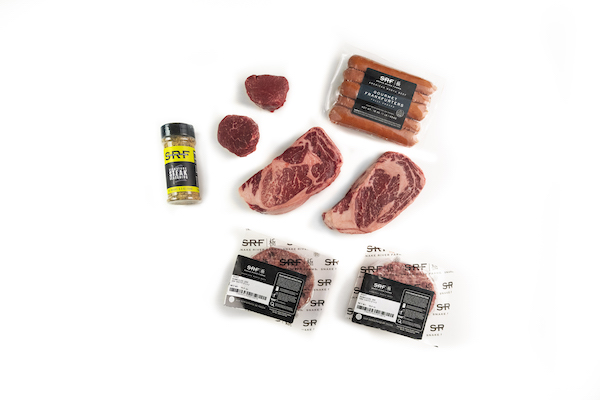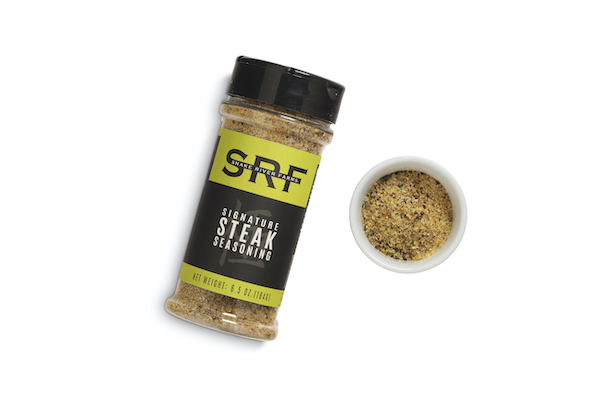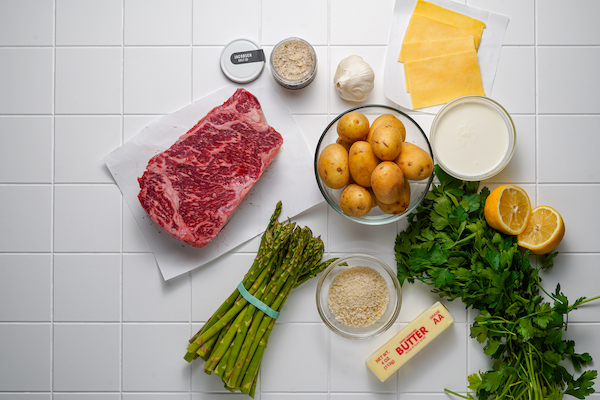The Great Expanse
THE GREAT EXPANSE
∼ TUSCARORA, NV ∼
The world seems to be moving faster and faster, but life doesn’t hurry in rural Northern Nevada. And neither does Sam Mori, a third-generation rancher and cattleman who makes his home outside Tuscarora, a tiny outpost about an hour’s drive northwest of Elko.
It’s a peaceful drive up to the ranch. Homesteads are tucked here and there, with neighbors often miles apart from each other.
Not much has changed over the years, and the folks who call these parts of the country home wouldn’t have it any other way. Cell phone signals are sparse. There are no supermarkets. Driving out here? You better have enough gas to get back. I didn’t see a gas station the whole way up, or many of life’s other conveniences, for that matter. Come to think of it, I saw none. Just thousands of cattle, roaming the vast IL Ranch’s 1.6 million acres.


BORN TO BE A COWBOY
It takes a tough-as-nails person to live here. Even tougher to raise cattle in some of the most remote backcountry in America. But according to Sam, he’s been ranching “since I could walk.”
I believe him. I’d guess he probably saddled up with his dad, Nelo Mori, even before that. Sam was born into the life. His father, who is still alive and well at 98, grew up in Fornovolasco, a town in the province of Lucca, Italy. Nelo’s family operated a restaurant and hotel there, but in 1938, when Nelo was 14, he and his father departed to Ellis Island. They eventually settled in Fallon, Nevada.
“I have no idea how they ended up in Nevada,” Sam says. “My dad always wanted to be a cowboy and a cattleman, though.” The family cut wood for the mining operations around Fallon. Over the next few years, the family farmed row crops, branched out to alfalfa and corn, and built a feed lot for cattle.
Buying their own cattle was the natural next step. When it was time to move the cattle from the ranch to Eureka, Nevada — a distance of more than 150 miles — Sam’s family did it the hard way.
“Back then (in the 1940s), there were no trucks,” Sam explains. “So, when they went out to these ranches, they drove the cattle on horseback back to Fallon. He never put one of them on a truck or a trailer. That’s a long way from Eureka.”
Funny thing, with as much technology, as we have these days, much of the operation is still done the same way. We still drive cattle around the ranch
on horseback. Fix fence, too,” Sam says.
Some people go their whole lives not knowing what they want to do. Not Sam. Aside from four years at the University of Nevada-Reno, where he obtained a bachelor’s degree in farm and ranch management with a minor in accounting in 1977, Sam has spent his whole life in the lands of Northern Nevada, raising and tending cattle.

“I never had a backup plan,” he says. “I don’t know what I would’ve done if I didn’t raise cattle. I never really thought about that, to be honest.”

NEIGHBORS AND FRIENDS
Sam met Robert Rebholtz Sr., the founder and visionary behind Agri Beef and Snake River Farms, around 1990. “Bob,” as Sam calls him, had cattle adjacent to his ranch. It was the beginning of a long relationship with Agri Beef, which continues to this day.
“He was a good man,” Sam says. “Bob was an example of the American dream. He had a vision. A vision for himself. A vision for his family. A vision for his company. It’s very rare where you find someone who has a dream and is able to piece it all together and connect the dots. But he was intelligent and brave. He had a lot of guts.”
After Bob’s untimely passing in 1997, his son, Robert Rebholtz Jr., took over the reins of the company. “You wonder if those kids (of Bob Sr.) were ready?” Sam remembers. “It was quite a scary thing for us as producers.”
The uncertainty, as is common during transitional periods in any industry, gave pause to the relationship. “A boy became a man real quick,” Sam recalls. “And that’s hard. Bob prepared him. His father instilled values in his family first, and they, in turn, instilled these values in their family of companies. There’s a very high regard for the relationship and the respect they have for their customers and their customers’ needs. And in return, that develops trust from the company to their producers to their customers. It’s very impressive, and we appreciate what they’ve done for us as producers.”
The relationship Sam maintains with Agri Beef is as strong as ever. It all begins and ends with trust and integrity, much like any important relationship in life. “Agri Beef has the latest technology with some of the oldest values. And that’s the difference. They still maintain personal relationships with all their customers,” Sam says.


AN EXTENSION OF FAMILY
Sam’s primary operation revolves around backgrounding cattle, which is a beef production system that keeps cattle on pasture from the time calves are weaned until they are transitioned to a feedlot.
“We have a purebred herd,” Sam says. “Basically, a seedstock center out in our place in Lovelock (Nevada).” This is where Sam develops his bulls and replacement heifers to create his herd.
Sam operates multiple ranches across the region, each with a specific purpose. “As far as what’s here (Mori Ranch and parts of IL), we run a cow/calf operation,” he says. “We put out some yearlings, but that’s a flexible option according to the feed.”
Being on the ranch with Sam, you can’t help but marvel at beauty of the landscape. It’s the middle of nowhere in the middle of nowhere.
Some places surprise you. This place surprised me. It’s peaceful and easy to understand why Sam values this place. He sees and spends more time with cattle than people. They’re important to him, too.
“I probably take better care of them than I do myself,” Sam says. “We all do, actually.” It’s easy to detect the sincerity in his voice. It’s almost like the cows he raises are an extension of his family. They might as well be.
IT'S NOT WORK
You’d never know by looking at his face, but Sam’s been ranching for 43 years, married for 44. He’s a family man who loves what he does. He’s in bed by 7 p.m. and up at 3 a.m., every day. “If you love what you do, it’s not work,” Sam says.
When asked about the last time he took a vacation, Sam quickly quips, “Don’t ask that in front of my wife. I can’t tell you the last time. It’s been a while.”

He’s 65 now and may not move as fast as he used to, but then again, this is cattle country. Sam moves at the speed of cattle. He estimates he’s raised thousands of them — at least 40,000, probably more. If you look at his genes and proclivity for work, Sam likely has tens more thousands of cattle to raise. And that’s just how he’d like it.
“I’ll do this until I can’t do it anymore,” he says.
We should all be so lucky.


